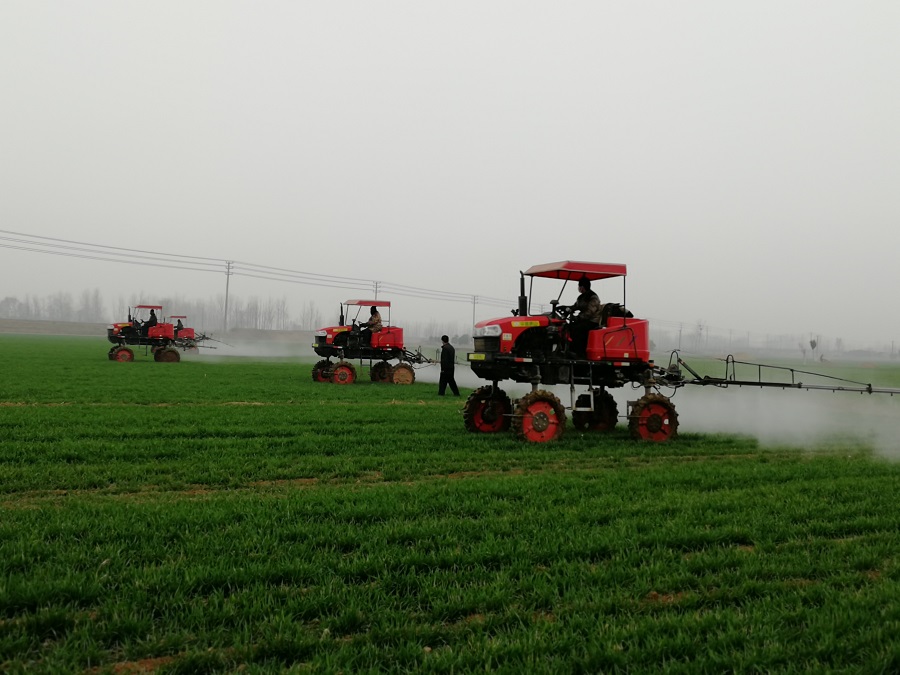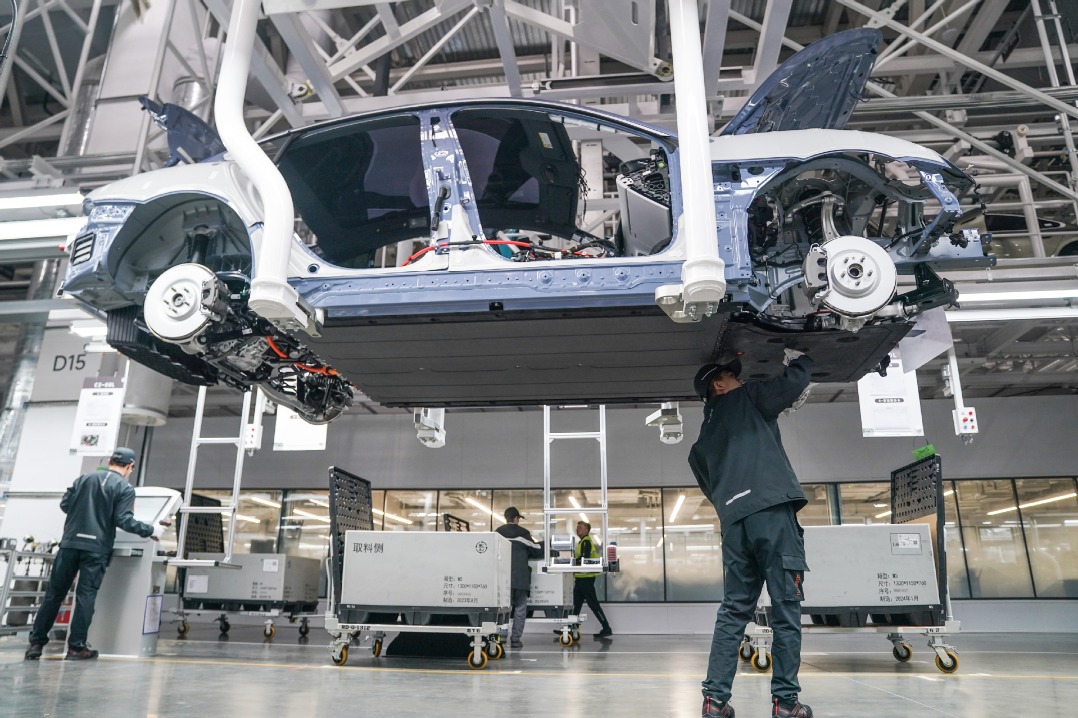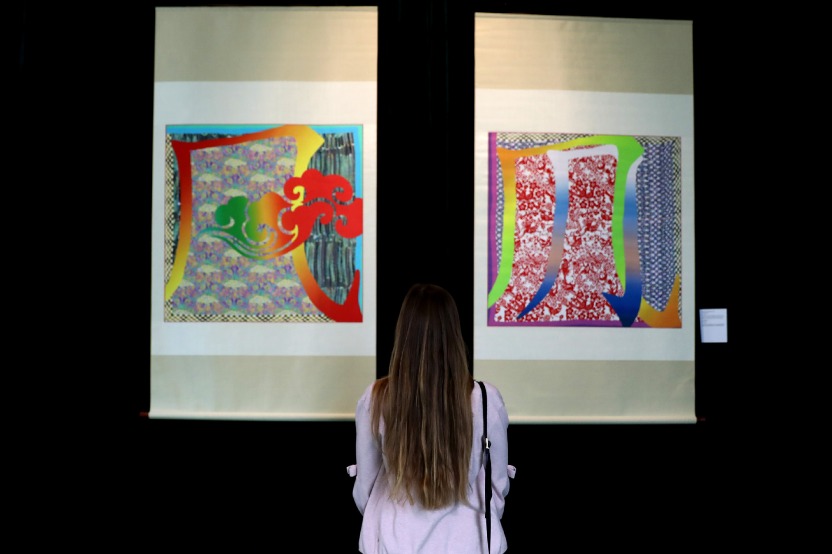Shandong at the forefront of agricultural innovation
By Du Meng | chinadaily.com.cn | Updated: 2024-04-22 10:35

If you are a native of Shandong like me, you will be well acquainted with the proverbial saying you are not as tall as a scallion. This folk adage, although sarcastic in nature, holds some truth. In Shandong, it is not uncommon to find scallions taller than 1.5 meters and pumpkins weighing 200 kilograms. The agricultural prowess of Shandong has consistently ranked at the top in China, and this rapid development can be attributed to advancements in science and technology.
When discussing Shandong in China, aside from having one of the most generous people, one cannot overlook its advanced agriculture. According to the National Bureau of Statistics of China, the total output value of agriculture, forestry, animal husbandry, and fishery in Shandong has ranked first in China, with the total amount exceeding one trillion yuan.
Almost each city in Shandong is famous for its distinctive agricultural products: Weihai offers delectable seafood options while Yantai provides sweet and juicy fruits. Weifang is renowned for its fresh vegetables. During summer nights at barbecue booths, Tsingtao beer perfectly complements Rushan oysters whose enticing aroma easily captivates passersby.
The key to advanced agriculture lies in the government's robust support for agricultural scientific and technological innovation. In the 14th Five-Year Plan of Shandong, the government proposed to adhere to innovation-driven development and emphasized the crucial role of science and technology in agriculture. This includes accelerating the development of modern seed industry, enhancing agricultural science and technology innovation capabilities, promoting the collaborative innovation among enterprises, universities, research institutes and end-users, as well as fostering rural digital economy development. It is projected that by 2022 , Shandong's agriculture will witness a contribution rate of scientific and technological progress reaching 66.3 percent, nearly 4 percentage points higher than the national average.
According to the Shandong Provincial Government, an investment of 150 million yuan will be allocated toward science and technology innovation and development in 2023 with a primary focus on the agricultural innovation along with green and safe production practices. The total number of talents in rural areas has reached more than 2.7 million. Moreover, high-tech technologies such as the Internet of Things (IoT) and big data have been successfully applied to revolutionize various aspects of agriculture management across all stages resulting in significant advancements toward modernization levels within this sector.
The modernization efforts undertaken by Shandong's agricultural sector have played a pivotal role in domestic poverty alleviation as well as rural revitalization nationwide. On the one hand, the high yield of excellent seeds cultivated in Shandong, such as corn, soybeans and other grains, has made stomachs of more people full. In particular, Shandong actively conducts comprehensive research on the treatment, development and utilization of saline-alkali land as well as the breeding of saline-alkali tolerant plants. This endeavor holds significant importance for China, which possesses about 82 million acres of developable and usable saline-alkali land.
According to the data released by the Shandong Provincial Department of Agriculture and Rural Affairs, as of 2021, the aquaculture area on saline-alkali land in Shandong has reached around 326 thousand acres with a total output of 614,000 tons. Furthermore, Shandong has not only solved the problem of enough food, but also focused on the problem of eating well. By producing organic vegetables, sugar-free beverages, high-quality seafood products, etc., Shandong's agricultural offerings have become more competitive in the international market while simultaneously increasing farmers' income. In 2022 alone, the value of Shandong's agricultural exports reached 139.4 billion yuan, accounting for over one-fifth of national exports. Additionally, rural residents in Shandong experienced a per capita disposable income reaching 22,110 yuan, indicating a further narrowing urban-rural income gap.
Modern agriculture practices implemented in Shandong have also benefited numerous countries worldwide. Over the past decade through the Belt and Road Initiative, China has been committed to sharing developmental achievements with more nations and people globally. For instance, Africa's agricultural output contributes to about one-third of its gross regional product.
However, due to insufficient levels of mechanization within agriculture sector along with inadequate water conservancy infrastructure, African countries face low food self-sufficiency rates thereby limiting their developmental potential. In cooperation with African nations, Shandong is at the forefront of China's efforts, with a cumulative investment of $1.33 billion in Africa in 2022, and the establishment of six overseas cooperation parks. Among them, the China-Sudan Agricultural Cooperation Development Zone serves as a comprehensive agricultural park that focuses on crop cultivation, processing, deep processing, agricultural science and technology innovation, trade of agricultural materials, agricultural machinery services and so on. The crop varieties and agricultural technologies from Shandong have successfully spread across continents and oceans to take root and flourish thousands of miles away on the African continent, contributing to the development of around 362,000 acres of local agricultural industry. In recognition of this fruitful cooperation, it was named among the Top 10 Global Poverty Reduction Cases by the World Food Organization in 2022.
Shandong is renowned as the birthplace of Confucius and Mencius, two prominent figures representing Confucianism, and the latter put forward the idea of assisting others when one becomes rich. Today, Shandong is making steady progress toward modernizing its agriculture. It is through these agricultural advancements and contributions in both domestic and international realms that we are witnessing Mencius' profound philosophy being reflected upon.
Du Meng is a Shandong University student and a trainee at the workshop "Telling Shandong Stories Well" hosted by the Global Engagement Academy at the School of Culture and Communication at Shandong University (Weihai). The views don't necessarily represent those of China Daily.
If you have a specific expertise, or would like to share your thought about our stories, then send us your writings at opinion@chinadaily.com.cn, and comment@chinadaily.com.cn.






















